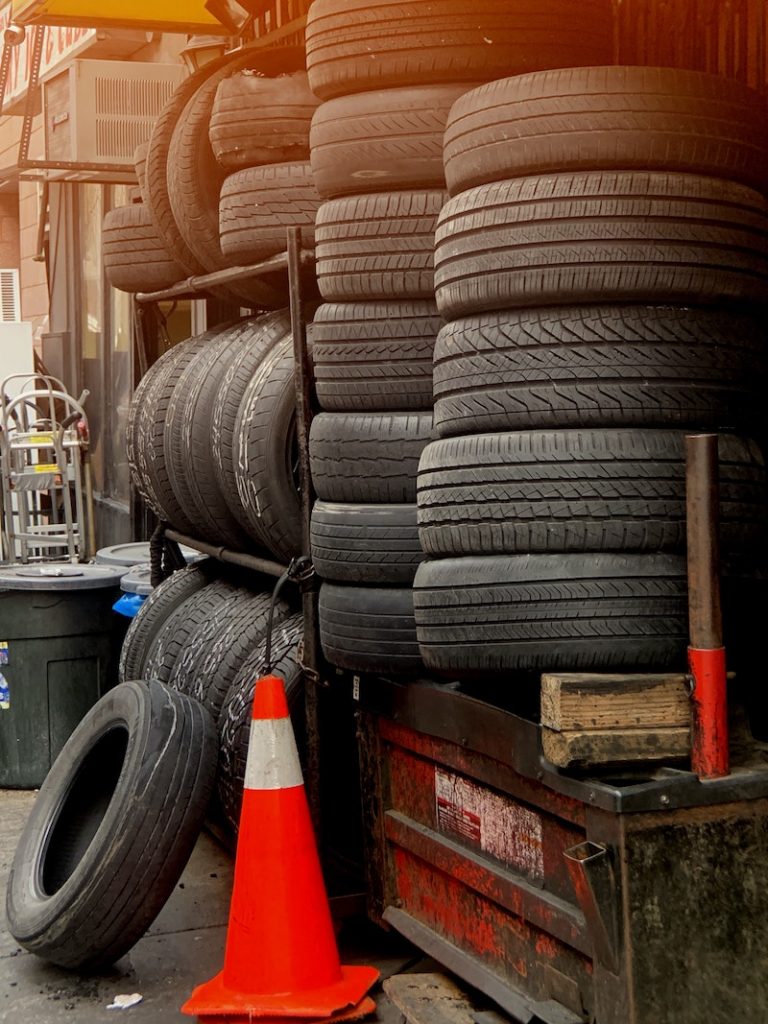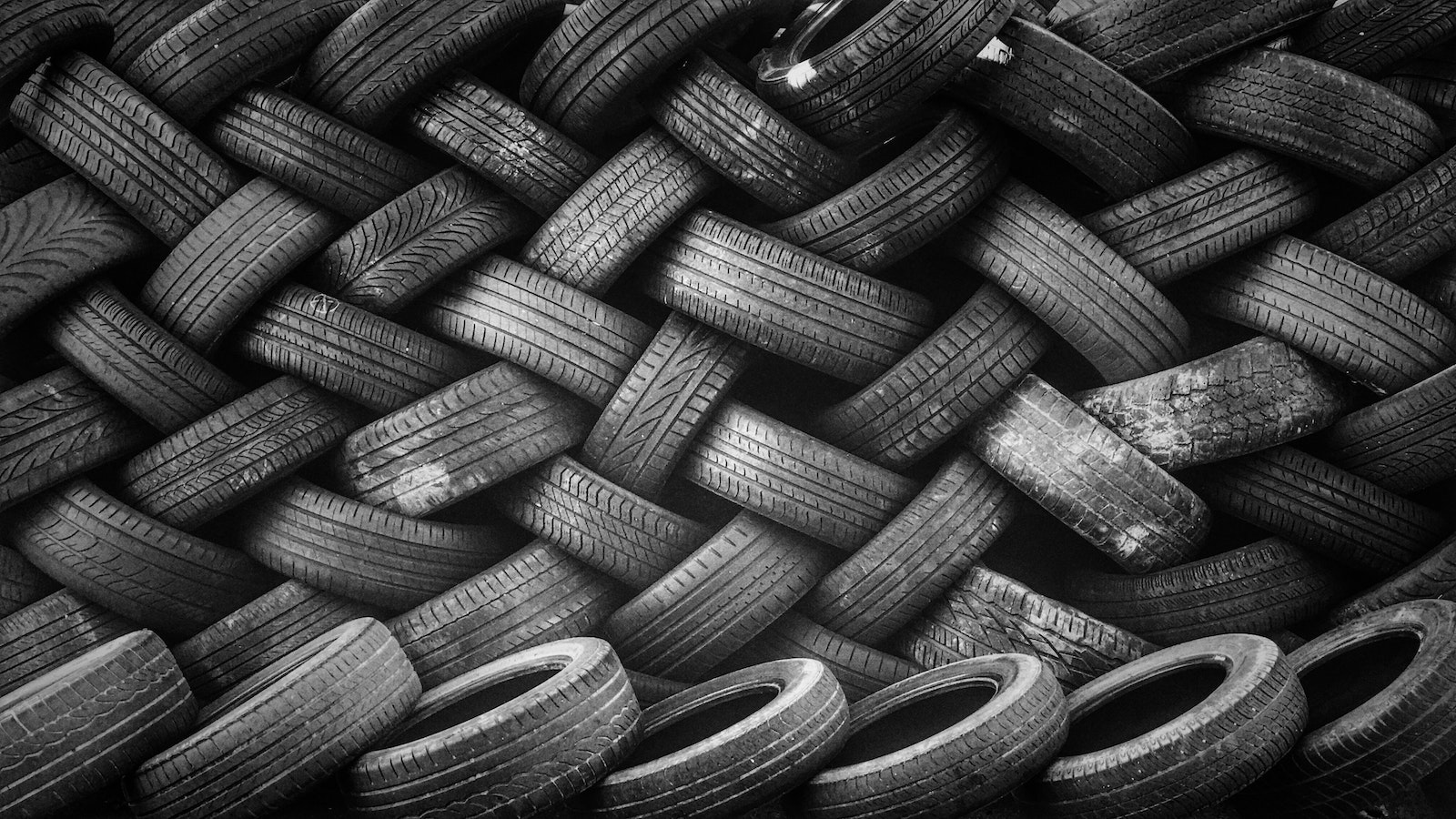It can be pricey to switch out your truck tires, so you want to make sure you get ones that work well with your vehicle. Otherwise, you may be wasting a lot of money. After you read our guide, we are confident you will know how to make the best possible choice for yourself.
What to Know Before You Change Truck Tires
Before you replace your truck tires, you will want to check for the “LT” mark on the tire. If you see it, you will want to make sure that your truck is designed to have those types of tires. The same “LT” mark will be in either your glove box or driver side door.
In this guide, we have all of the best advice for buying truck tires, so make sure to keep reading if you want to learn more.
What Does “LT” Mean?
“LT” on a tire means that it is intended for “Light Truck” use. Companies would design those tires for light-duty pickup trucks, which would have a capacity of ½ ton, ¾ ton, or a one ton load.
LT tires are more durable than a P-Metric tire and can handle heavy loads even under the worst weather and road conditions. If you do a lot of work with your truck, you will need to find a set of reliable tires to back you up. This is part of the tire code that all tires are required to have.

Truck Tires for Tough Conditions
Before you buy your new tires, think about the conditions you will be driving your truck in. Are you going to be carrying heavy loads, or will the road conditions not be right? Or maybe both? Every set of tires comes with a load rating that you will want to check out before buying.
You want to ensure that the load rating matches your heaviest loads, not the ones you take on average. That way, you can feel confident that the tires will always work their best for you.
And finally, you will need the tires to have treads that can handle the worst types of roads you expect to be on. Snowy, muddy, and sandy roads are generally the worst. You will want to have a tread that can give you the most possible traction.
If you are having a hard time determining what types of tires would work the best for you in these conditions, contact a tire sales company and let them know the conditions you expect to drive your truck in. The staff will be familiar with the tires and let you know what they think would be best for you.
If you see a “P” on your current tires, this stands for “passenger car.” That means that they are intended for transporting people and not heavy loads in the truck bed. You could still carry some items, but you will not want to overload your truck- or you might run into issues.
How to Know When You Need New Truck Tires
Most people let their truck tire’s treads wear down to the wear bars. When you reach that point, they are still legal to drive on, but you lose a lot of traction and durability. Even when you have not hit the wear bars, your tire might not be safe for bad road conditions.
If you are carrying heavy loads, you will want to ensure your safety. You can do this by replacing the tires before that or when you notice they have cracks in the tread. To put it in perspective, tires that still have ⅛ inches left of tread take 125 more feet to stop than new tires.
Is it Worth Paying Premium?
You might be wondering about the high price tags on some truck tires. Why are they so expensive? Well, if a tire costs more, you are probably going to get a lot more out of it.
Premium tires are typically made with higher-quality materials, which leads them to cost a lot more. That means that they can provide you with better traction, durability, carry heavier loads, long-lasting treads, and overall better handling on your truck.
Plus, premium tires come with a few extra design features that will be beneficial to you. The first are the reinforced sidewalls. When these are on a tire, they give it more strength and durability when driving over uneven surfaces or curbs.
The other popular feature is the stone ejector. This design allows tires to keep stones from getting stuck in them, which could potentially lead to a flat otherwise. Other features enhance traction and prevent the tires from slipping on ice or snow.
So, paying premium gives you tires that last longer, are safer, and have additional safety features- all of these factors together make it worth your while to consider investing in them.
Do You Need Light-Truck or Passenger Tires?
This question is one that many people have. If you currently have light-truck tires, it might seem like switching to P tires will save you money. However, this is not necessarily true. The passenger tires will need to be the same size as your truck tires, so you might not save very much.
This is because trucks have a high center of gravity when compared to other passenger cars. You will still need a sturdy tire and a large one at that- lowering the amount you could have expected to save significantly.
However, passenger tires do give you a smoother ride. They are quieter, too, making them best if you plan on using your truck for a family vehicle and not so much for hauling materials.
If you plan on using your truck for moving anything, LT tires will be the better option for you than P tires.
Truck Tire Summary
Overall, purchasing a new set of truck tires ensures that you can haul heavy loads with ease. Worn out tires have less traction, making them less safe to drive on. Plus, LT tires are much more durable and can hold a lot of weight. Passenger tires are best if you want to use your truck as the family car or have no plans to move objects.






